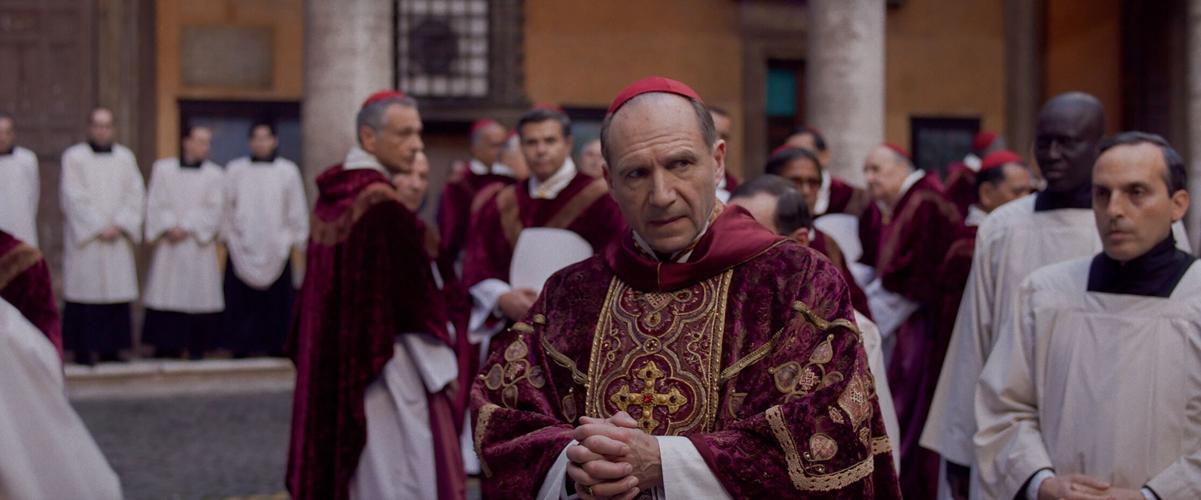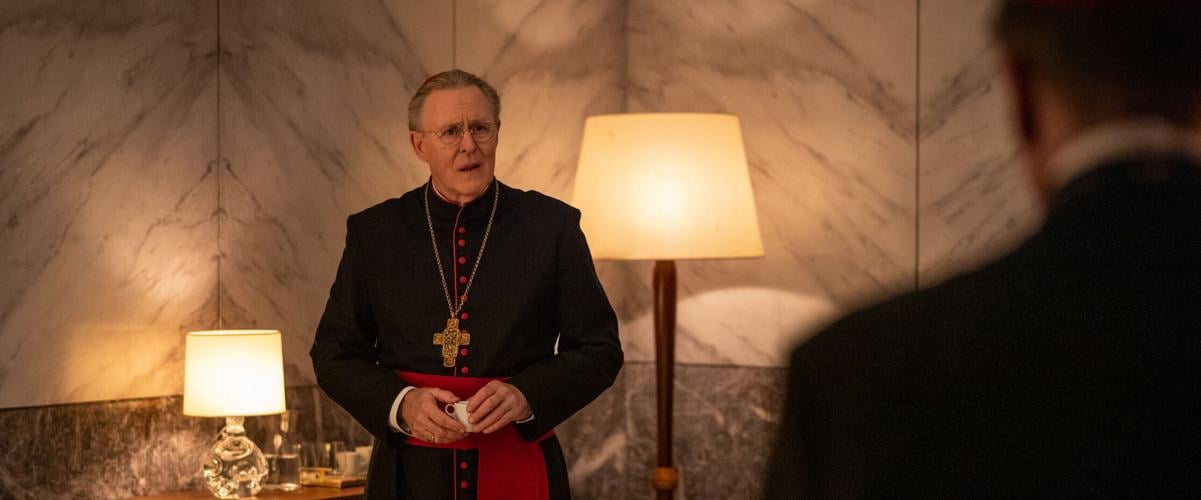Ralph Fiennes has played so many characters in his career it’s difficult to peg his Cardinal Lawrence in “Conclave.”
Is he compassionate, concerned or conniving as the dean of the College of Cardinals, tasked with selecting the new pope? Or is he none of those? At times, everything is on the table.

A new Pope is needed. Enter Ralph Fiennes. In director Edward Berger’s follow-up to “All Quiet on the Western Front,” Fiennes stars as Cardinal Lawrence, one of the Vatican figures who gather for a conclave to choose a new pontiff. When Lawrence uncovers a secret that others would rather stay hidden, the conclave teeters toward going up in smoke. (Nov. 1, theaters)
Early on, he insists he has no interest in the job. But, little by little, we see ambition peek through. Could he be the next pope? Or is this Salieri thwarted on the biggest stage of them all?
Based on Robert Harris’s thriller, “Conclave” unfolds like a real potboiler, particularly since there are questions about the late pope’s death and the backgrounds of those likely to ascend. As the mighty assemble (looking like characters from “A Handmaid’s Tale” in all those overhead shots), it’s clear this is as political as any American presidential race.
People are also reading…
Lawrence tries to keep order, of course, but has plenty of conversations with those who have doubts about the men leading the pack. A particularly good underling (expertly played by Bryan F. O’Byrne) constantly delivers intel about the candidates’ fitness and ability to serve. One by one, the mighty fall. During those protracted voting scenes, director Edward Berger makes his biggest moves, letting slight gestures tell plenty.

Ralph Fiennes stars as Cardinal Lawrence in "Conclave."
Stanley Tucci, John Lithgow and Sergio Castellitto are three in the running – three with motives, three with “problems.” And then, there’s a cardinal they didn’t even know was in their company. Could Cardinal Benitez (a touching Carlos Diehz) be the swing voter?
Very theatrical in its structure (this would make a great play), “Conclave” shows how human frailties can figure into picking superhuman leaders.
Tucci gets an upper hand or two, then opens his door to Fiennes and discovers his intentions.
Naturally, a film like this can’t end with an easy solution, so there are ancillary factors (including an important piece of information from Isabella Rossellini’s Sister Agnes) that keep bumping the vote.
When the cardinals do reach some kind of consensus, there’s yet another hurdle to cross. While it’s a bit contrived coming at the film’s end, it does speak to the uncertainty that plagues those charged with making such a decision.
Because of the nature of the reveal, there’s enough that could be debated to fill a second film.
The outside world – rarely seen – has an impact on those sequestered. One moment smacks of something a writer might drop in a novel but it’s something that gives those involved ample opportunity to doubt their choices.
“Conclave” moves faster than a Sunday Mass, has plenty of humor and boasts the kind of performances that could fill an Oscar slate.
Tucci, Lithgow and Castellitto could easily stake claims to a Best Supporting Actor prize. But Fiennes is one who should strongly be considered for Best Actor. As subtle as his performance may be, it exhibits plenty of nuance and all the detail you’d want in someone who earns the title.
He galvanizes “Conclave” and makes it an important film – for now and forever. Like Gregory Peck in “To Kill a Mockingbird,” his is a performance that can be delivered by no one else. It is unforgettable.
“Conclave,” in many ways, is, too.













